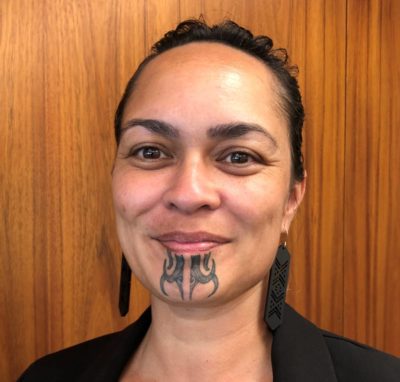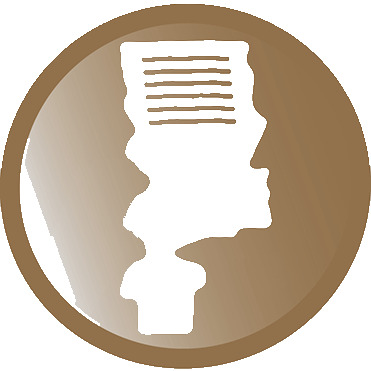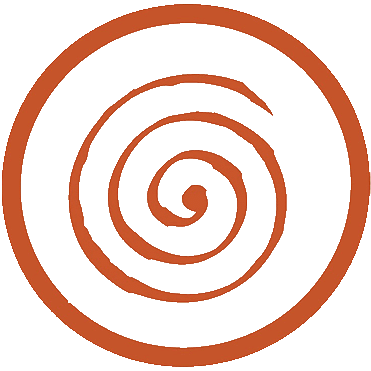
Tash Hau
He waka eke noa
We are in this together
It is recognised that the education system as it is can work against Māori learners. It is timely that the marginalising of Māori be intercepted and replaced with the voluntary evolution of hearts and minds, normalising success for Māori and broadening our scope of the wonderfully unique ways in which this can present itself.
Professional learning and development through Poutama Pounamu offers the perfect transportation to this destination where equity, excellence and belonging are tangata whenua upon its shores. Working together to navigate and shape an inclusive way of knowing, being and doing, with the compass aligned to high expectations for all, unity and deliberate action towards shared visions for success.
 Te Tiriti o Waitangi
Te Tiriti o Waitangi
Tuku atu, tuku mai
Working collaboratively
Te Tiriti o Waitangi is ultimately about partnership. The weaving together of uniquely differing world views to coexist harmoniously. Honouring Te Tiriti through our work I see as building and maintaining transparent partnerships where both parties are respected, seen and heard. As demonstrated by the art of tukutuku, the threading back and forth, consistent collaboration is fundamental to the process.
It is known that Te Tiriti o Waitangi was not honoured in the way that it was intended. Now that we know better, we have a collective responsibility to do better. Engaging in informed discussions relating to Te Tiriti, unravelling some of the misconceptions to grow in understanding. Let us work together in true partnership as was originally intended by Te Tiriti o Waitangi.
 Kaupapa Māori
Kaupapa Māori
Tū mai rā ngā pou o tō tātau whare -
Stand firm the pillars of our house
Kaupapa Māori acknowledges an indigenous world view as valid & meaningful foundations from which Māori can thrive. Learners being encouraged and supported to be authentically and unapologetically Māori within our schooling system will be pivotal in seeing development and evolution of both perceptions and outcomes. Having the principles of kaupapa Māori as the pou of our whare help to create an environment where Māori feel they belong and are more likely to achieve success in a space where they are valued and understood. Recognising the relevance and legitimacy of kaupapa Māori will ensure Māori have the best chance at succeeding as Māori. What is beneficial for Maori, is beneficial for all.
 Critical Consciousness
Critical Consciousness
Mā te rongo ka mōhio, mā te mōhio ka mārama, mā te mārama ka mātau, mā te mātau ka ora
Through listening comes awareness, through awareness comes understanding, through understanding comes knowledge, through knowledge comes life and wellbeing
To actively deconstruct the disparities within our society to move towards more socially just communities we must uncover and identify the influencing factors of the status quo. Following this, the crucial factor will be engaging in dialogic action to better understand the positioning of both Māori and Non-Māori alike in today’s society and together create a vision for what a better multicultural New Zealand could look like, sound like and feel like.
Ending the culture of silence won’t be without its growing pains and discomforts, much as the progression from te kore, to te pō, producing te ao mārama as we know it to be now. These conversations and actions will best position us to steer away from the deliberate design of inequity and be critically conscious in our thinking, actioning and deliberate planning for our future.
 Whakawhāiti (inclusion)
Whakawhāiti (inclusion)
E tū kahikatea, hei whakapae ururoa, awhi mai awhi atu tātau tātau e
Kahikatea stand together, their roots intertwine, strengthening each other
Help one another & together we will be strong
To be inclusive is to foster respectful relationships as a foundation for inclusion to occur. Recognising that we all have experiences and strengths to offer and understanding that they may quite likely differ from our own. He taonga te whakarongo, listening is a treasure. Listening to hear rather than to respond can be a determining factor in the tikanga of inclusiveness. Resonating with not only what falls upon the ear, but what settles upon the heart. Manaakitia te tangata.
Deliberate acts of manaakitanga will help to build and maintain inclusive practice. Rather than viewing ourselves as different, let us embrace our uniqueness to assist us in building complementary relationships.